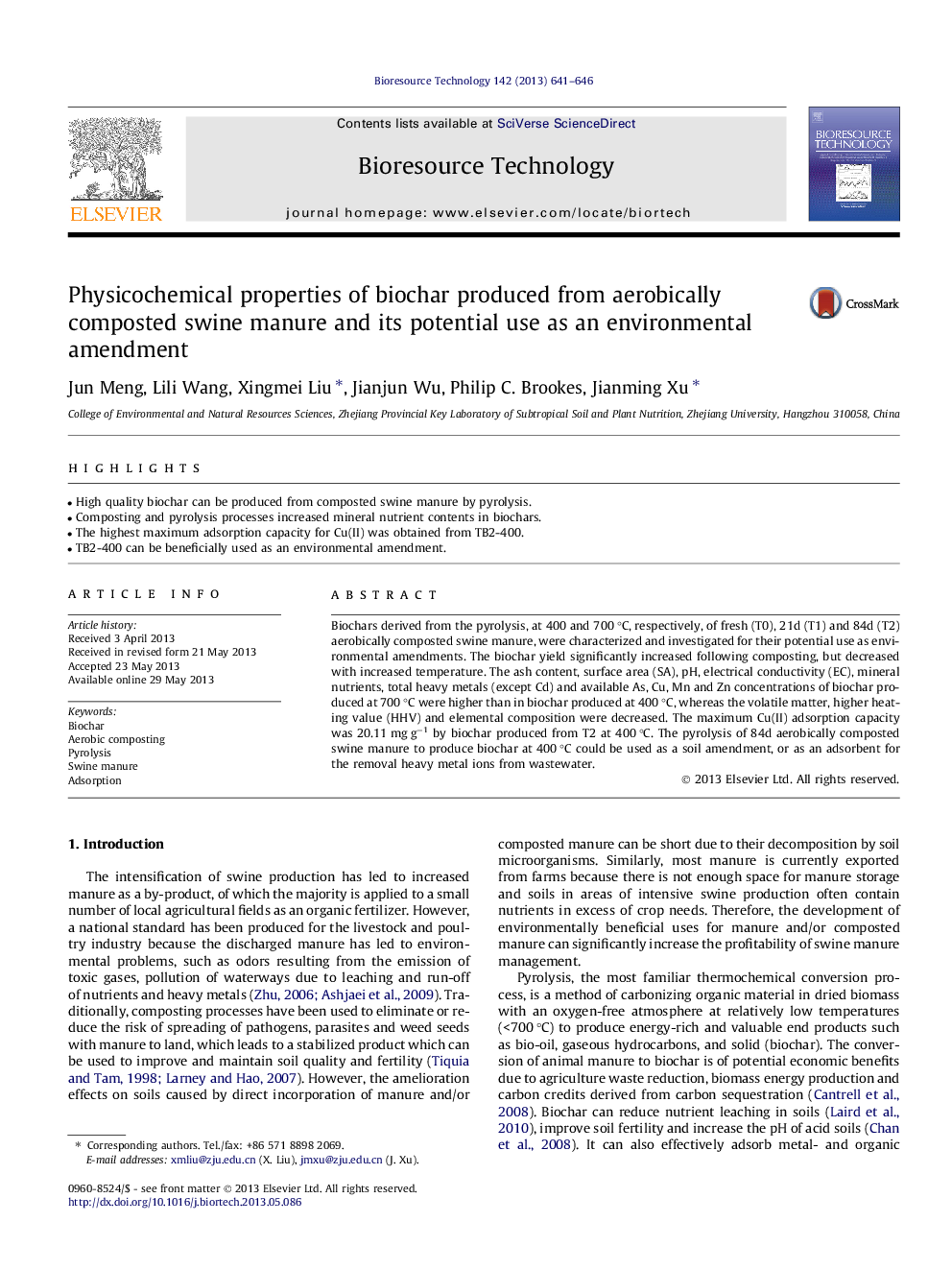| Article ID | Journal | Published Year | Pages | File Type |
|---|---|---|---|---|
| 7081795 | Bioresource Technology | 2013 | 6 Pages |
Abstract
Biochars derived from the pyrolysis, at 400 and 700 °C, respectively, of fresh (T0), 21d (T1) and 84d (T2) aerobically composted swine manure, were characterized and investigated for their potential use as environmental amendments. The biochar yield significantly increased following composting, but decreased with increased temperature. The ash content, surface area (SA), pH, electrical conductivity (EC), mineral nutrients, total heavy metals (except Cd) and available As, Cu, Mn and Zn concentrations of biochar produced at 700 °C were higher than in biochar produced at 400 °C, whereas the volatile matter, higher heating value (HHV) and elemental composition were decreased. The maximum Cu(II) adsorption capacity was 20.11 mg gâ1 by biochar produced from T2 at 400 °C. The pyrolysis of 84d aerobically composted swine manure to produce biochar at 400 °C could be used as a soil amendment, or as an adsorbent for the removal heavy metal ions from wastewater.
Related Topics
Physical Sciences and Engineering
Chemical Engineering
Process Chemistry and Technology
Authors
Jun Meng, Lili Wang, Xingmei Liu, Jianjun Wu, Philip C. Brookes, Jianming Xu,
